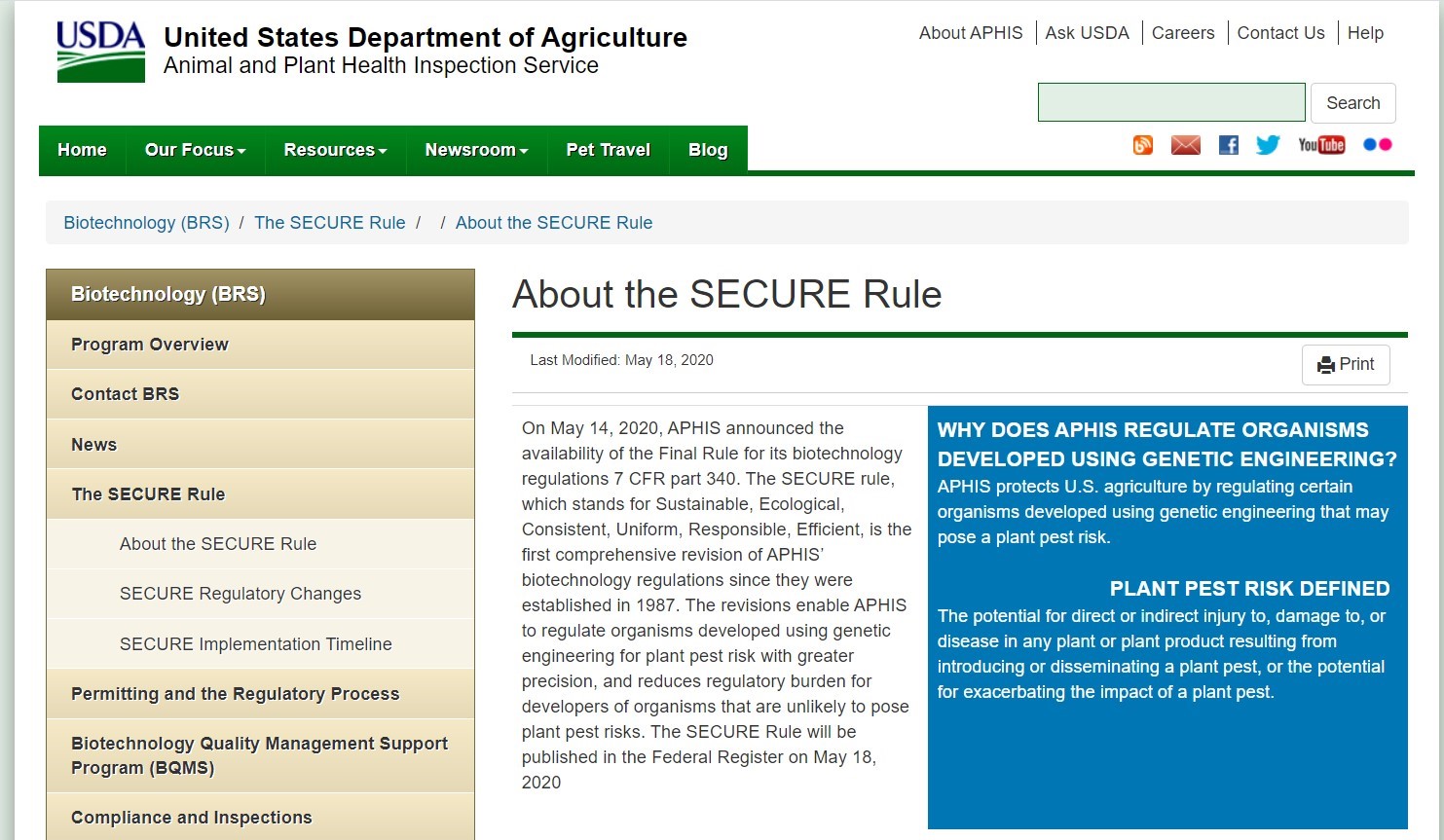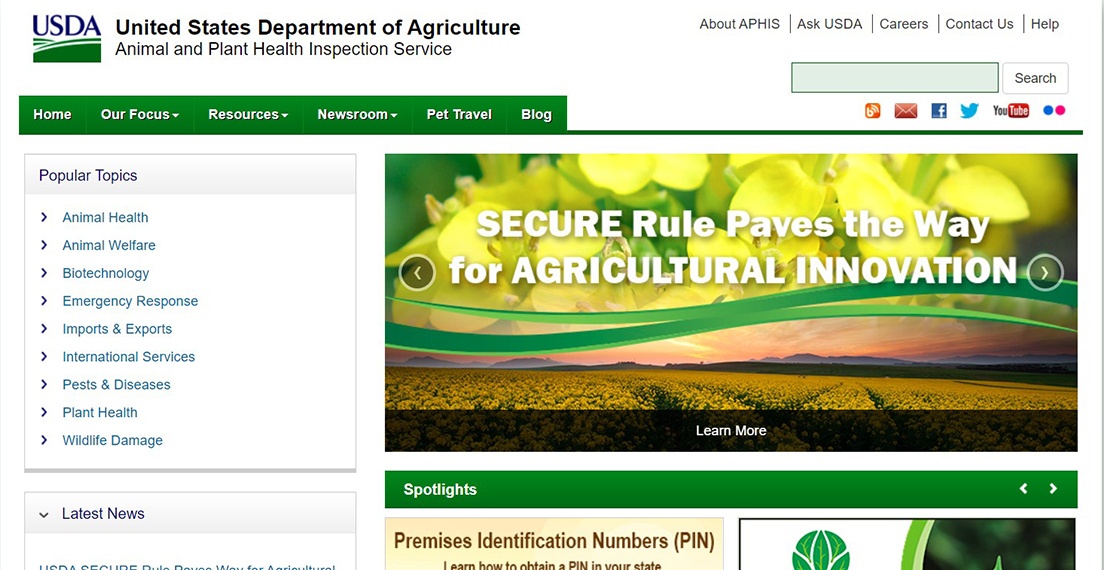By Shelbi Knisley, USW Director of Trade Policy
On May 18, 2020, USDA and its Animal and Plant Health Inspection Agency (APHIS) published revised rules intended to modernize its regulatory system on genetically engineered organisms and other breeding technologies through a science-based system.
USDA said this new rule will help give U.S. farmers access to these critical tools “to help increase agricultural productivity and sustainability, improve the nutritional value and quality of crops, combat pests and diseases, and enhance food safety. This new rule signals to the world that the United States is focused on risk assessments based on science to give proper oversight to these new technologies.

In particular, the rule seeks to address products that are developed through gene editing, which is of great interest to U.S. wheat producers. Gene edited products may be exempt from strict regulation so long as no “plant pest” is present, and the products could be produced through traditional breeding methods. While many in the industry are working to determine exactly how much of these exemptions will apply to wheat breeding, the approach is similar to that taken by other countries such as Argentina, Australia, Brazil, Canada, Chile, Colombia, Israel and Paraguay.
While of smaller interest to U.S. wheat customers, as there have been no genetically modified (GM) traits commercialized in wheat in the United States, the rule also adjusts the existing regulatory structure for GM plants. Those adjustments will make it easier for companies to bring to market GM plants with the same plant and trait combinations that USDA has previously reviewed.
Through its joint Wheat Breeding Innovation Committee (WBIC) with the National Association of Wheat Growers (NAWG), U.S. Wheat Associates (USW) regularly consults with plant breeding companies and members of the grain handling industry. That dialog focuses on ensuring that regulation of new breeding technologies strikes an appropriate balance between preserving access to technology for U.S. farmers and avoiding market disruptions. That committee has established core policy positions regarding regulation of plants produced through gene editing, found here.
USW supports a science-based approach to regulating new technologies. Although there is no transgenic wheat in commercial production, U.S. wheat growers are excited about the potential for many of these new plant breeding innovations to feed a growing world population. This policy positions the U.S. to help encourage other trading partners to use science-based approaches when considering their own regulations on gene editing.
USW and NAWG will continue to work hand in hand with customers, seed developers and technology providers to ensure that domestic and overseas industry participants are informed when new technologies are brought to market. For more information, the USDA Rule can be found here and USDA’s Question and Answers can be found here.


